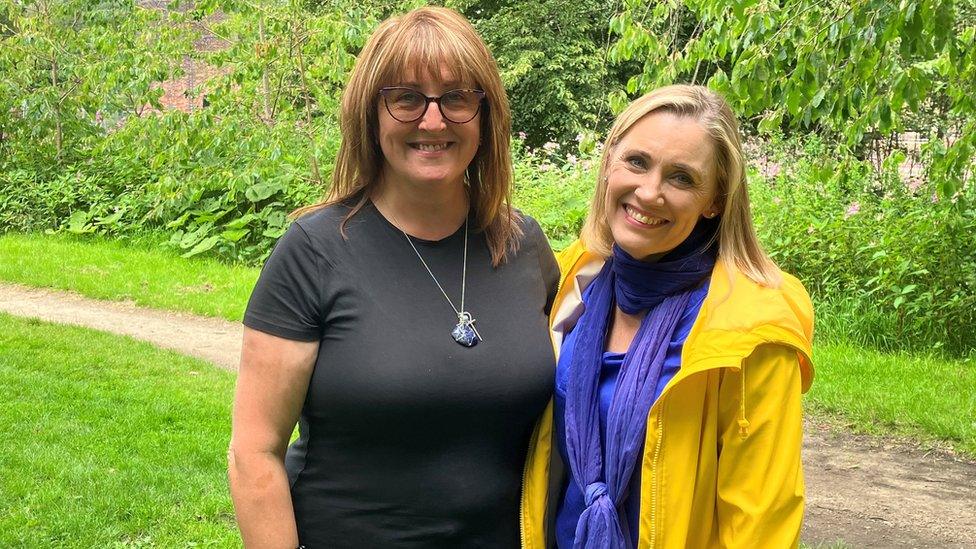'Glioblastoma took my fun-loving dad away'
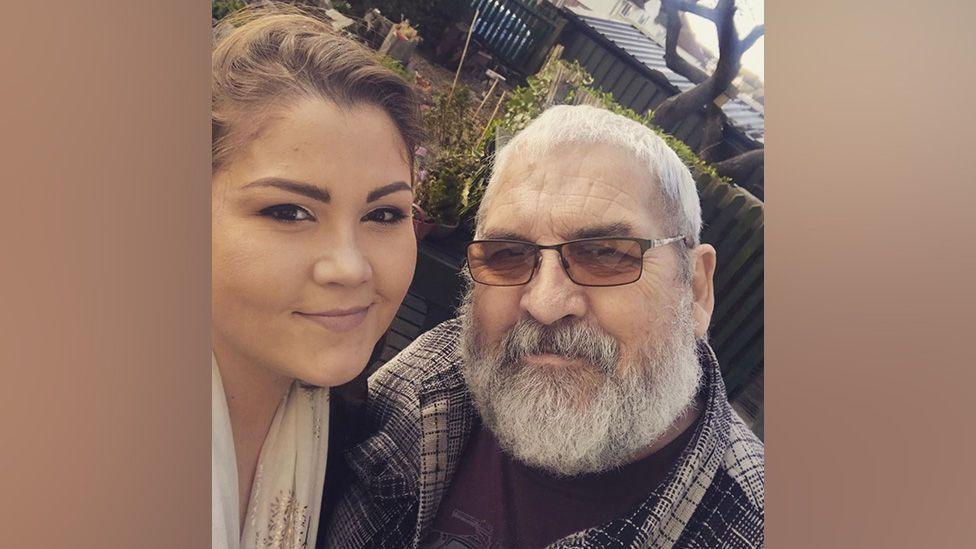
Sophie Leadsham from Sittingbourne said her father Steve was "hit hard" by treatment for his glioblastoma
- Published
"By the time we got his diagnosis appointment, I was already grieving his loss," Sophie Leadsham said.
The 36-year-old from Sittingbourne, in Kent, lost her father, Steve McDonald, in November 2020, two years after his diagnosis with an aggressive brain tumour.
Now she is calling for investment in research and treatment options for the disease to save other families the heartache she has endured.
Her call comes as the Brain Tumour Charity announced £300,000 of funding for immunotherapy research projects.
Sophie remembers her father as a joker and "the kindest man", until his fun-loving personality began to change.
It was assumed that the "loud shirt-loving" motorcyclist who "always danced at parties" was suffering from depression, until a scan in 2018 revealed he had glioblastoma multiforme, a notoriously difficult to treat brain tumour.
"The glioblastoma and treatment took away my dad, his funny, dopey and kind personality.
"It was devastating to see, a living grief," she said.
He died suddenly following a fall in 2020, but did live long enough to walk his daughter down the aisle at her wedding.
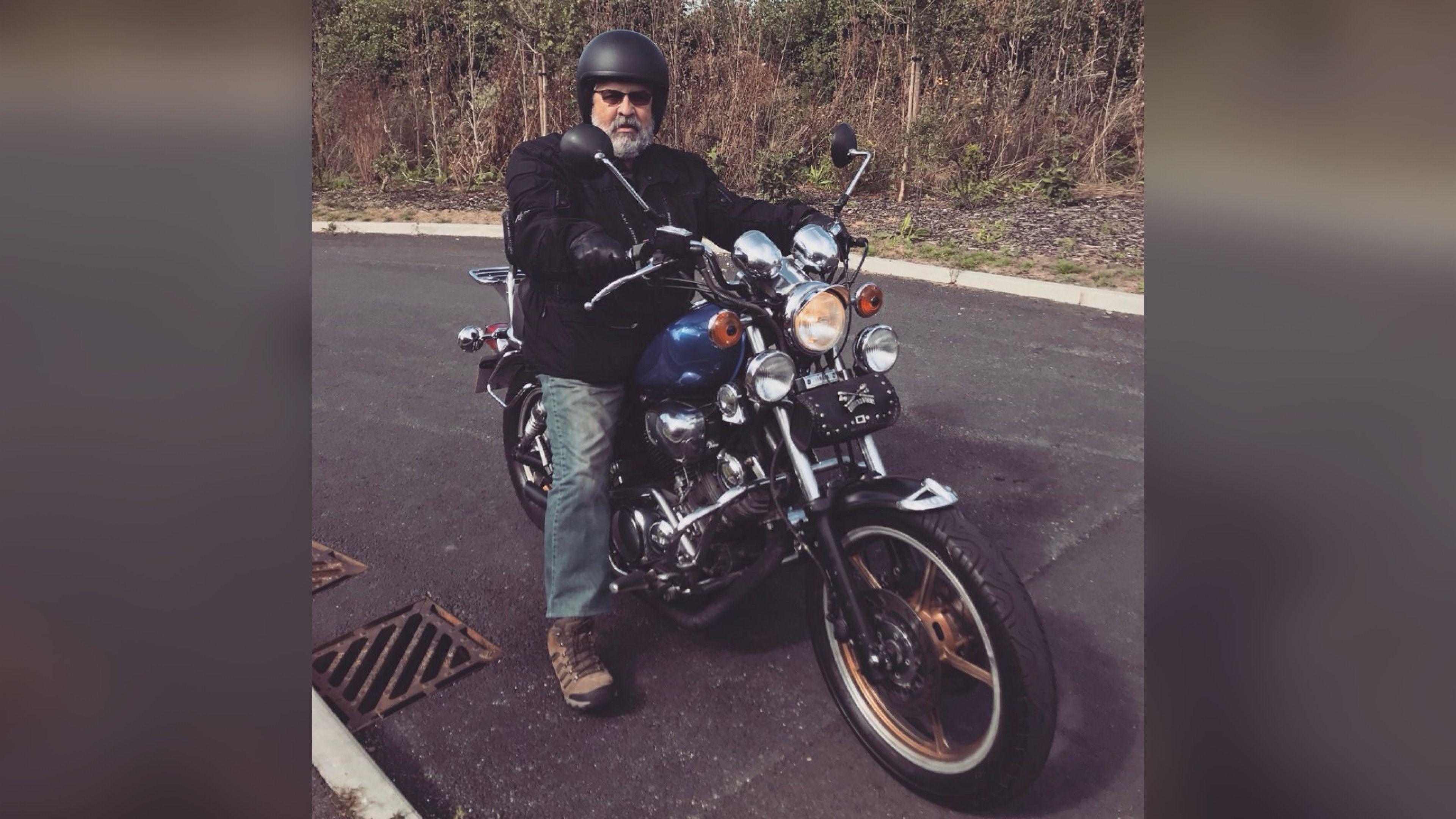
Steve had hoped to be able to ride his precious motorbike again one day
'Undignified and devastating'
"I learned a glioblastoma grew like tendrils invading his brain, making it impossible to treat - his best outcome was to hold it back a while longer.
"I’d also learned that the options, treatment and research were severely lacking and hadn’t changed in the last 30 years."
Sophie said her father "didn’t deserve to live his last months in the way he had to" and described it as "undignified" and "devastating to witness".
Glioblastomas affect more than 3000 people per year in the UK, with an average prognosis of 12 to 18 months, according to The Brain Tumour Charity.
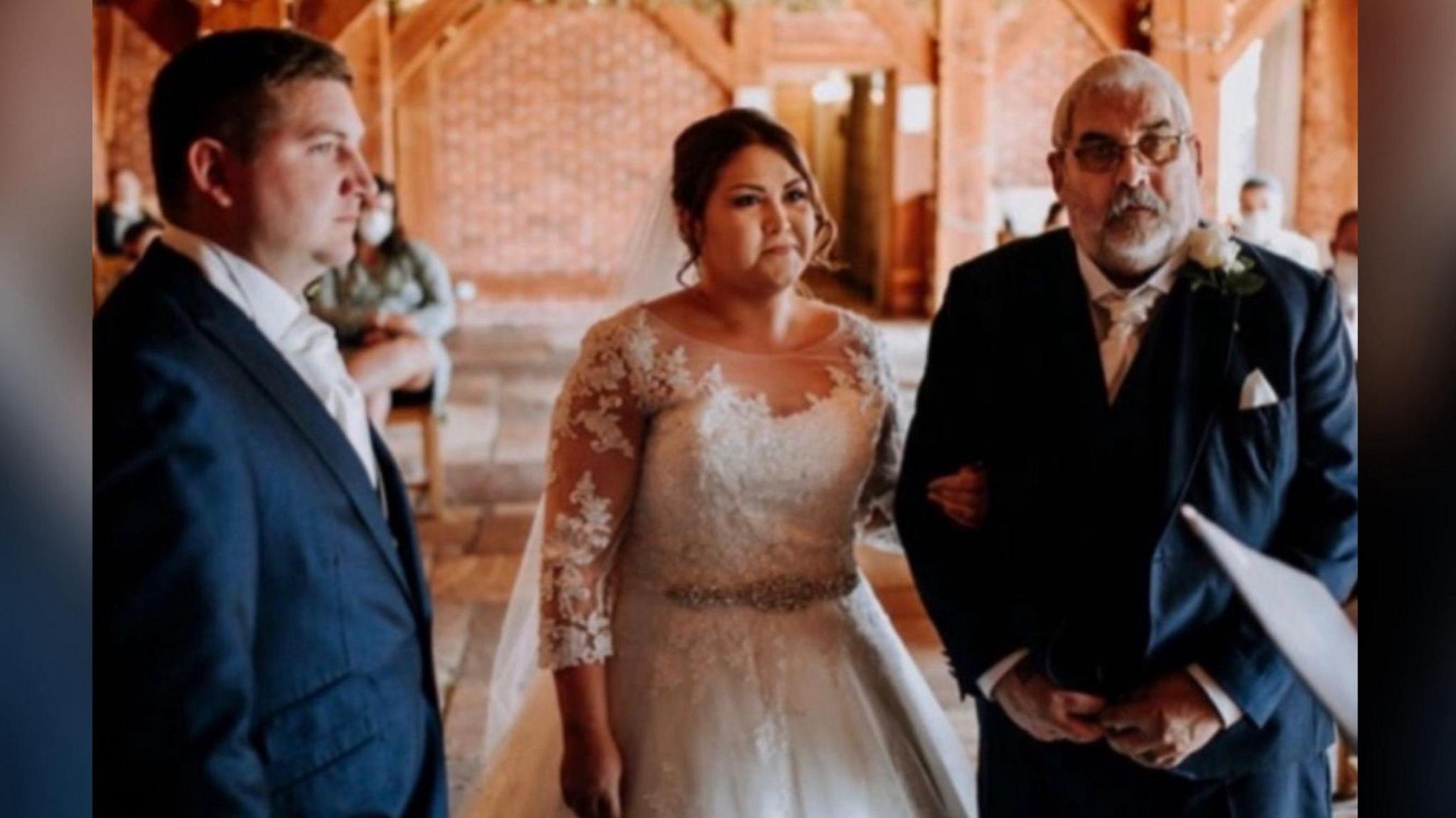
Steve walked his daughter Sophie down the aisle on her wedding day, following his diagnosis
Mrs Leadsham continued: “Investment, research and treatment options must be prioritised for brain tumours because my dad, and anyone else affected by this devastating diagnosis, deserve dignity, kindness and a chance for as much quality of life possible - however much life they have left.”
The Brian Tumour Charity said: "Finding a cure for this devastating disease can only be achieved through investment in research.
"By awarding £300,000 to two projects exploring innovative research, The Brain Tumour Charity is accelerating towards a cure to help families like Sophie’s in the future."
The funding has been split between research groups from Cambridge, Australia and California which are working on targeted immunotherapy techniques to treat glioblastoma.
Follow BBC Kent on Facebook, external, on X, external, and on Instagram, external. Send your story ideas to southeasttoday@bbc.co.uk , external or WhatsApp us on 08081 002250.
Related topics
See also
- Published28 May 2024
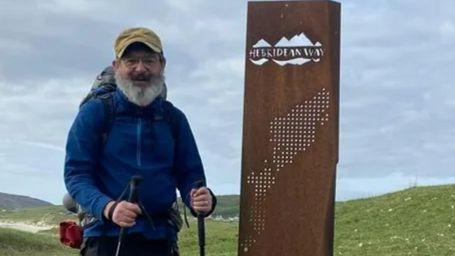
- Published17 April 2024
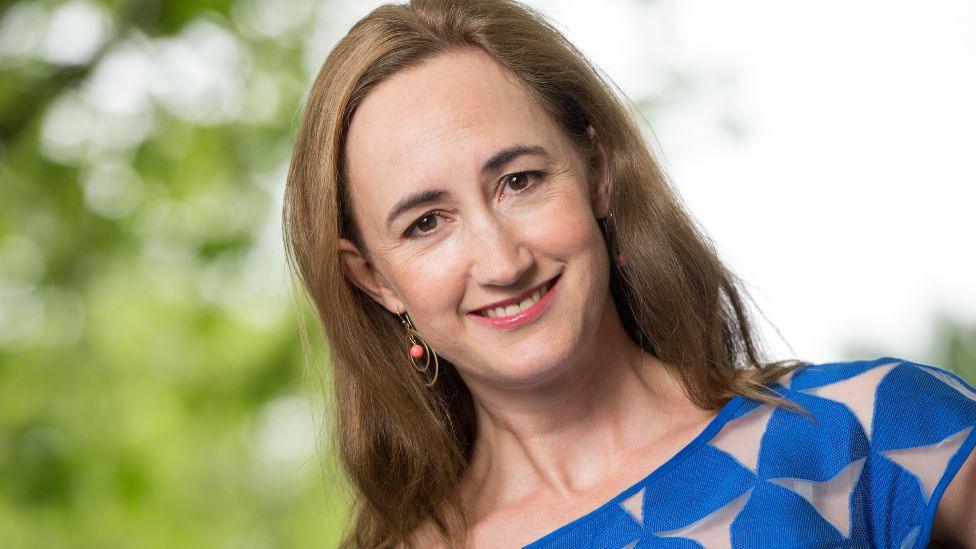
- Published7 March 2024
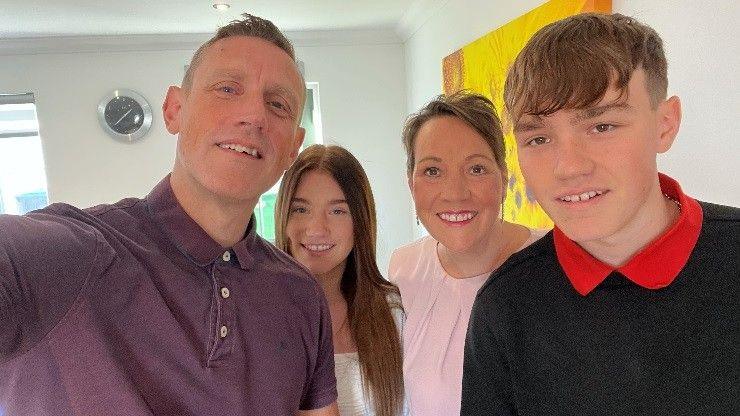
- Published8 August 2023
